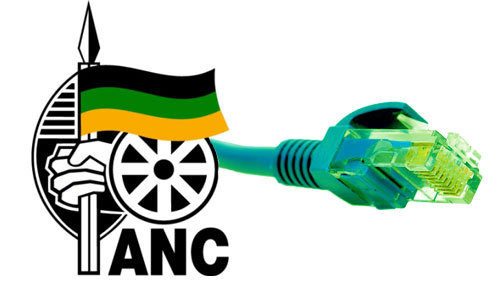
The ANC wants to incentivise mobile operators to “refarm” the spectrum they use for voice to provide broadband services in rural areas.
The ruling party’s latest weekly newsletter says that without “serious intervention” SA will not reach the target of “50% universal broadband coverage by 2015”. This is a target set by the UN as one of its Millennium Development Goals.
“Broadband access in SA remains very low at about 4% of the population and it does not seem realistic that we will reach at least 50% by 2015. Unless drastic policy and regulatory decisions are introduced, we are unlikely to see significant changes by that review period,” the statement says.
One of the interventions proposed by the ANC is to incentivise mobile operators to reallocate the spectrum they use to provide normal voice services in rural areas for deploying wireless broadband services.
Cell C was the first local operator to use 900MHz spectrum – traditionally reserved for second-generation voice networks – in the roll-out of a broadband data access network. Both Vodacom and MTN have begun following suit. However, MTN and particularly Vodacom are only looking at areas outside the major cities to refarm spectrum.
The ruling party also wants to give operators that focus mainly on rural areas an advantage by offering them “asymmetry”. This would means calls originating from underserviced areas and terminating on the network of an established operator should pay a preferential rate to incentivise rural connectivity.
The ANC says the plans would form part of a national broadband policy, which would include putting aside spectrum that can be used for broadband in the hopes of giving it to providers that will service the rural areas specifically.
A long-term view is needed to ensure the sustainability of these rural ventures so they don’t “disappear into thin air” like the under-serviced area licensees (Usals), the ANC statement says.
Usals were licensed in 2006 and 2007 in the hope that they would provide cost effective telecommunications to rural and poor urban South Africans.
However, the Usals have struggled to survive. “They were given licences in the hidden belief that funders would flood in to help them roll out these services,” says BMI- TechKnowledge MD Denis Smit.
Smit says the ANC’s move to boost the political profile of broadband is “noble”. However, he says the policy plan needs big money to back it up. “These services cost billions to roll out.”
He says broadband in rural areas will require financial input of a scale far in excess of what government or the operators can do alone. “What is needed is a solid public-private partnership,” he says.
Smit says large mobile operators should also not be excluded from gaining access to spectrum that can be used to build services to the underserviced areas.
The ANC began tackling the broadband issue at its National General Council meeting held in September.
The party hopes increased access to broadband will help boost the SA economy and create a “new skills revolution”. It wants to include a skills development target in its national broadband plan. — Candice Jones, TechCentral
- Subscribe to our free daily newsletter
- Follow us on Twitter or on Facebook




